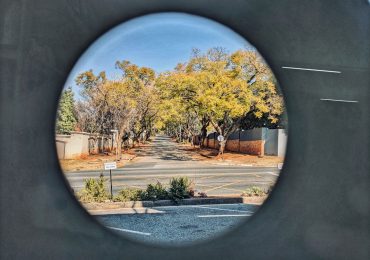The 2024 Booker Prize longlist has been announced, featuring ‘blackly comic page-turners, multigenerational epics, meditations on the pain of exile—plus a crime caper, a spy thriller, an unflinching account of girls’ boxing and a reimagining of a nineteenth-century classic’, according to the prize.
The longlist of thirteen books was chosen from over 150 submissions, and includes three debut authors—Rita Bullwinkel, Yael van der Wouden and Colin Barrett—and six previously nominated writers.
Percival Everett was shortlisted in 2022 for The Trees, Samantha Harvey was longlisted in 2009 for The Wilderness, and Hisham Matar (In the Country of Men) and Claire Messud (The Emperor’s Children) both featured on the longlist in 2006, with Matar progressing to the shortlist that year. Rachel Kushner (The Mars Room) and Richard Powers (The Overstory) appeared on the 2018 shortlist. Powers was also longlisted in 2014 for Orfeo and shortlisted in 2021, for Bewilderment.
American born British–Libyan writer Matar is the only author of African heritage on the longlist this year, being nominated for his book My Friends. Van der Wouden is the first Dutch author and Tommy Orange the first Native American author to make the longlist.
The Booker Prize is open to works of long-form fiction by writers of any nationality, written in English and published in the United Kingdom and/or Ireland.
Edmund de Waal, chair of the Booker Prize judges, says:
‘After seven months and 156 novels it is a great moment to be able to hand over this glorious longlist of urgent, resonant books for the Booker Prize 2024: a cohort of global voices, strong voices and new voices.
‘One of the true markers of the novels that we have chosen is that we feel they are necessary books, fiction that has made a space in our hearts and that we want to see find a place in the reading lives of many others. To reach the end of a novel and to be deeply moved and be unable to work out quite how that has happened is a great gift.
‘This is timely and timeless fiction, in which there is much at stake. Here are books that unfold with quietness and stealth, as well as books that are incendiary. There are books that navigate what it means to belong, to be displaced and to return. Crossing borders and crossing generations we find ourselves in a boxing ring in the US, in a small Irish town, in a convent in Australia, deep underground in rural France. We have one book on the list exploring deep oceans, another navigating outer space, a third tracking a comet. These are not books “about issues”: they are works of fiction that inhabit ideas by making us care deeply about people and their predicaments, their singularity in a world that can be indifferent or hostile. The precarity of lives runs through our longlist like quicksilver.
‘But there is no single register here. We need fiction to do different things—to renew us, give solace, to take us away from ourselves and give us back to ourselves in an expanded and reconnected way. And, of course, to entertain us.
‘We think our longlist does all of this and we hope you agree.’
2024 Booker Prize longlist
- Wild Houses by Colin Barrett
- Headshot by Rita Bullwinkel
- James by Percival Everett
- Orbital by Samantha Harvey
- Creation Lake by Rachel Kushner
- My Friends by Hisham Matar
- This Strange Eventful History by Claire Messud
- Held by Anne Michaels
- Wandering Stars by Tommy Orange
- Enlightenment by Sarah Perry
- Playground by Richard Powers
- The Safekeep by Yael van der Wouden
- Stone Yard Devotional by Charlotte Wood
This year’s panel of judges is Edmund de Waal (chair), Yiyun Li, Nitin Sawhney, Sara Collins and Justine Jordan.
The shortlist of six books will be announced on Monday 16 September in London. The shortlisted authors each receive £2,500 (about R59,000) and a specially bound edition of their book. The winner will be revealed on Tuesday 12 November.
Last year’s Booker Prize winner was Paul Lynch for his novel Prophet Song, which saw a 1500% increase in sales in the week following its win—the commercial boost being known as the ‘Booker effect’.





